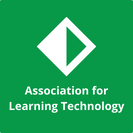This webinar is part of our 2022 CPD webinar sessions. Participants will earn an ALT CPD Open Badge which can be used as evidence towards accreditation via one of the pathways in ALT’s CMALT framework.
If you missed a previous CPD webinar, recordings are available over on Youtube; 2021 Playlist, 2022 playlist.
Presenter: Anti-Racism and Learning Technology SIG & Open Ed SIG with Cat Hallam
The field of learning technology, also known as e-learning, educational technology and digital education, has been defined as the broad range of communication, information and related technologies that are used to support learning, teaching and assessment (Association for Learning Technology, 2021). Collins and Bilge ( 2020) define intersectionality as a “ way of understanding and analyzing the complexity in the world, in people, and in human experiences... When it comes to social inequality, people's lives and the organization of power in a given society are better understood as being shaped not by a single axis of social division, be it race or gender or class, but by many axes that work together and influence each other. Intersectionality as an analytic tool gives people better access to the complexity of the world and of themselves” In the field of learning technology, we are beginning to see an increasing interest in the decolonisation of digital education, critical digital pedagogy, and inclusive practice. For example, the Association for Learning Technology in the United Kingdom has recently launched its Framework for Ethical Learning Technology (FELT) to address inequalities across the sector and to “strengthen recognition and representation for Learning Technology professionals from all sectors.” (Association for Learning Technology, 2021). This session brings together the practices and innovations in learning technology in terms of intersectional approaches such as those advocated through open education to address inequalities in teaching, learning, assessment, and the professional lived experiences of learning technologists and academics who advocate for social justice with an intersectional lens with and via technology in the classroom. We will discuss questions such as: -Do students, faculty, and staff feel like they belong in our educational and technological systems? -How do we create a culture of inclusion and belonging in learning tech? -How do we change practice to dismantle systems of oppression?
